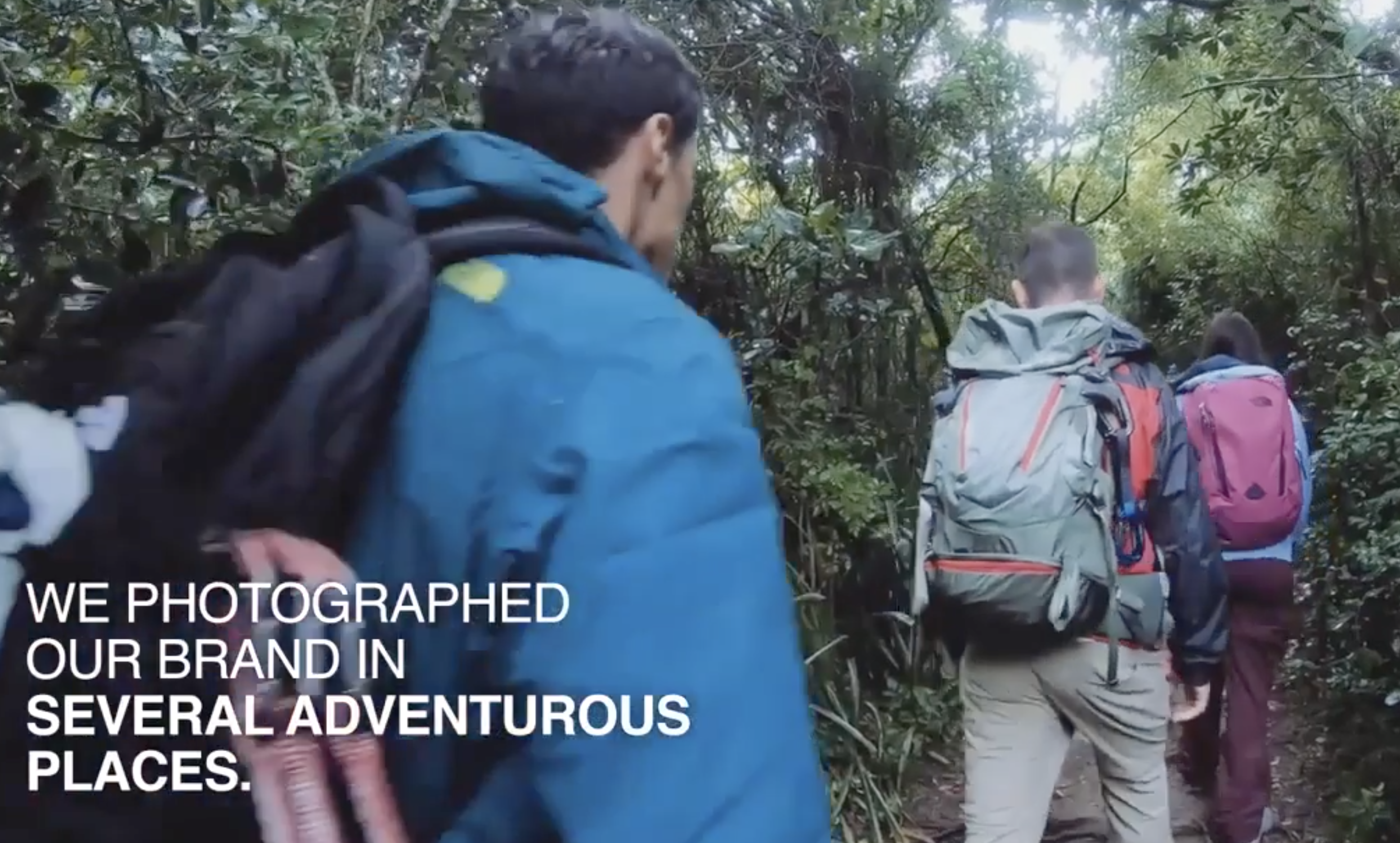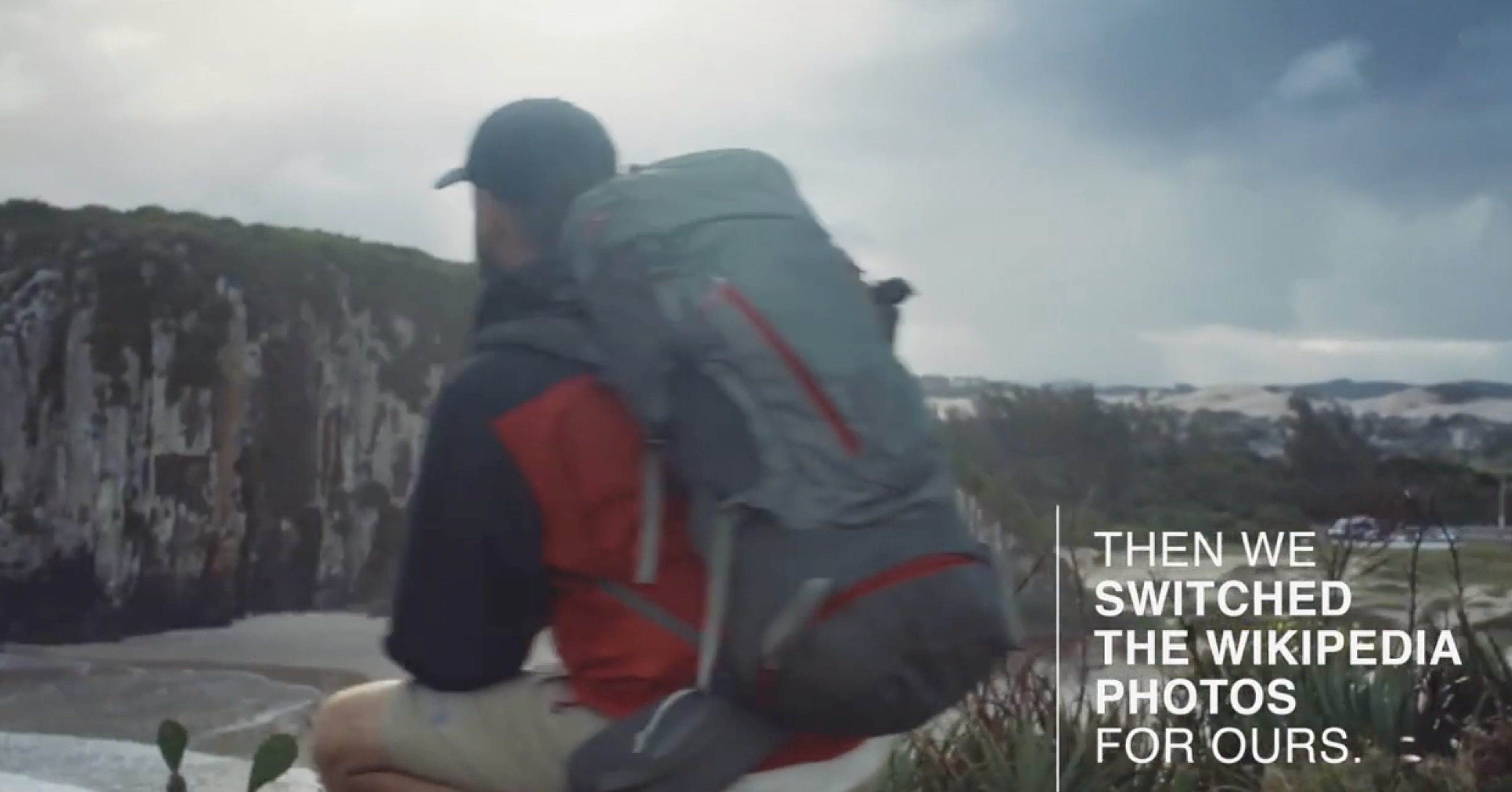The North Face Secretly Vandalized Wikipedia to Improve its Google Search Ranking
Credit to Author: Mitch Bowman| Date: Thu, 30 May 2019 18:42:44 +0000
Outdoor sporting goods company The North Face found itself in a bit of hot water this week after an ad agency working on its behalf seeded a number of Wikipedia articles for popular tourist destinations with photos of models wearing the brand’s clothing.
The rationale behind this stunt was to put The North Face clothing at the top of Google image results for various travel destinations (the news was first reported by AdAge). Wikipedia enjoys a very prominent position in the Google search results for basically every notable location on Earth, so the agency figured it was an easy way of getting some organic-looking product placement in front of a whole bunch of eyeballs for next to no money.
Unfortunately for The North Face and the ad agency Leo Burnett Taylor Made, editing Wikipedia without disclosing that you’re being paid to do so is explicitly against the site’s rules. The online encyclopedia’s volunteers, who work tirelessly to ensure the accuracy of information on the site, did not take kindly to the stunt.
On Tuesday, tweets from Wikipedia editors started making the rounds, decrying the agency’s questionable actions. On Wednesday, the Wikimedia Foundation issued its own official statement on the matter that called the campaign “akin to defacing public property.” Images uploaded by the ad agency have been deleted.



As Liam Wyatt, a prominent Wikipedia editor and former Wikipedian in Residence at the British Museum, explained on Skype, “The issue is in the secrecy. It’s not so much the crime, it’s the cover-up. The Terms of Service of Wikimedia Foundation have a specific clause against undeclared paid advocacy.”
Wyatt pointed out that there’s a small army of paid Wikipedia editors at various cultural institutions worldwide, but the key difference is that those institutions are disclosing their activity on Wikipedia and making a good-faith attempt to improve the site’s articles with their own resources and expertise. Not so in the case of The North Face.
Many of the photos the agency was uploading were of lower quality than the ones they were replacing them with. Photos suitable for an encyclopedia entry—that is, photos that accurately captured the subject in an unfussy, documentarian manner—were being replaced with sun-dappled photos of models standing around wearing fancy backpacks in the foreground while the actual scenery was relegated to the status of window dressing.
According to Wyatt, the agency could have pulled off their stunt in a way that would be more amenable to volunteer Wikipedians.
“The way they might have done it properly,” Wyatt says, “is when they added them to Wikipedia articles, they could’ve edited into their little edit summary ‘This is from this company or this campaign’ or ‘We’re uploading as part of this activity’ and that would be probably okay. They didn’t, and they said nothing on their own user pages. It wasn’t like they didn’t realize what they were doing, because they did use edit summaries when they made these edits, and the edit summaries said things like ‘recent photograph.’”
To top it all off, after violating Wikipedia’s terms of use, the agency released a slickly-edited video on Tuesday bragging about the campaign. They even went so far as to refer to the campaign as ‘collaborating with Wikipedia’ in one of the video’s text cards.
“They say the word ‘collaborate’ with Wikipedia, and then … the article says their biggest risk was being found out. If your biggest concern in doing a project that is ostensibly collaborative is being discovered by the people you’re collaborating with…that’s not a collaboration,” Wyatt said.
All of the edits that were made by the agency have now been reversed by Wikipedia’s volunteers. A few hours after the Wikimedia Foundation’s statement was published, The North Face apologized for the campaign via Twitter, and a spokesperson for the company indicated in an email to VICE that they are “in the process of reaching out directly to Wikipedia to figure out the best way to make it right.”
This article originally appeared on VICE US.